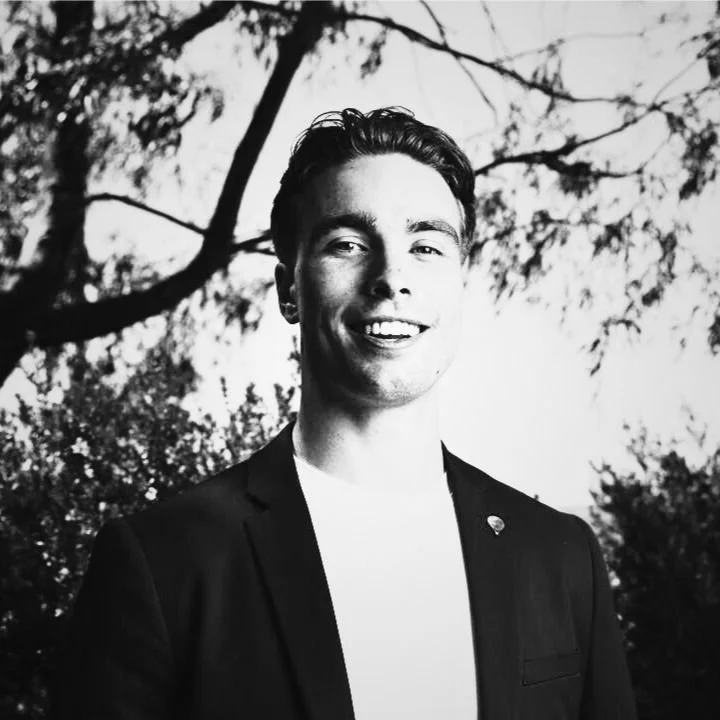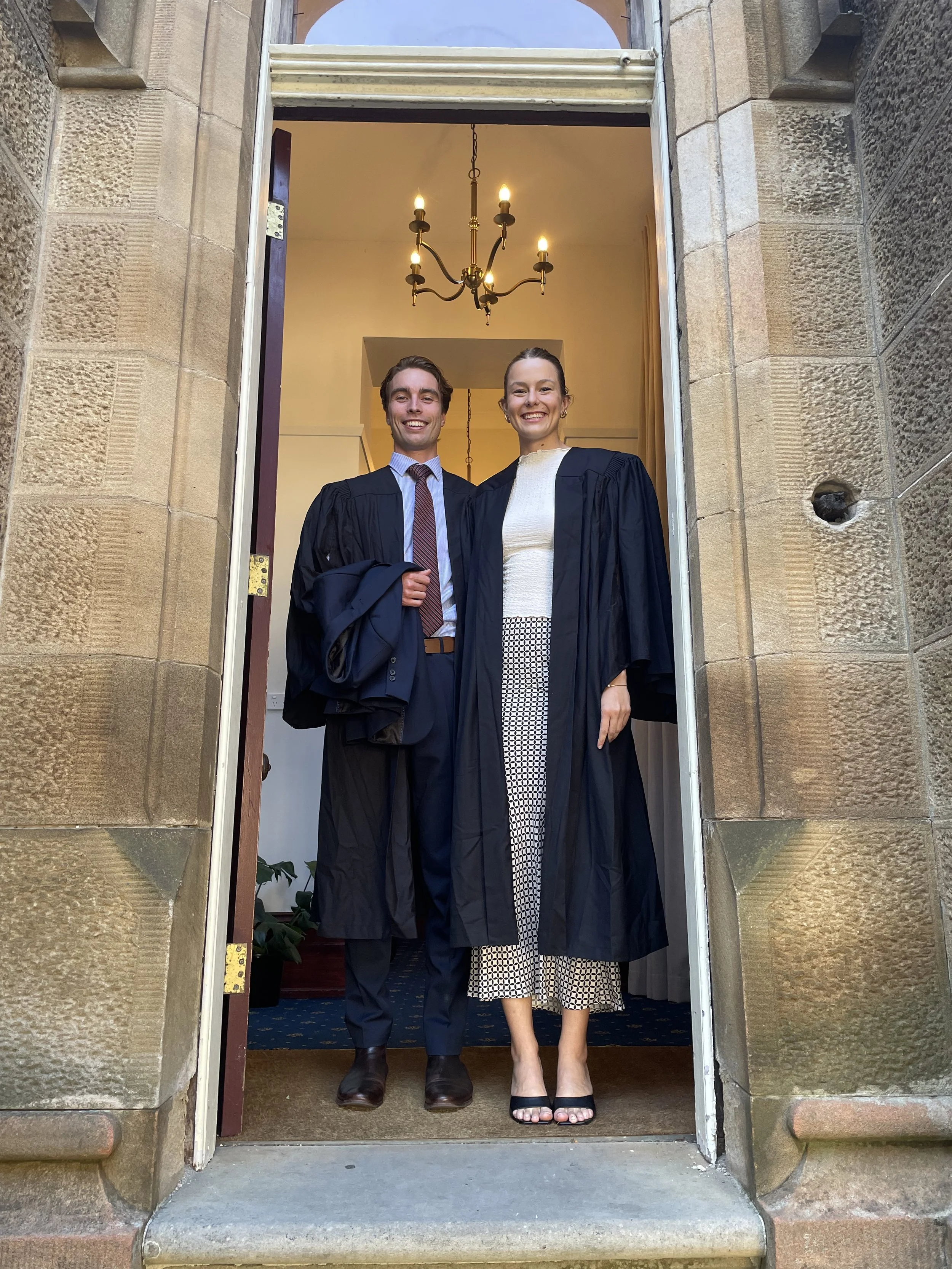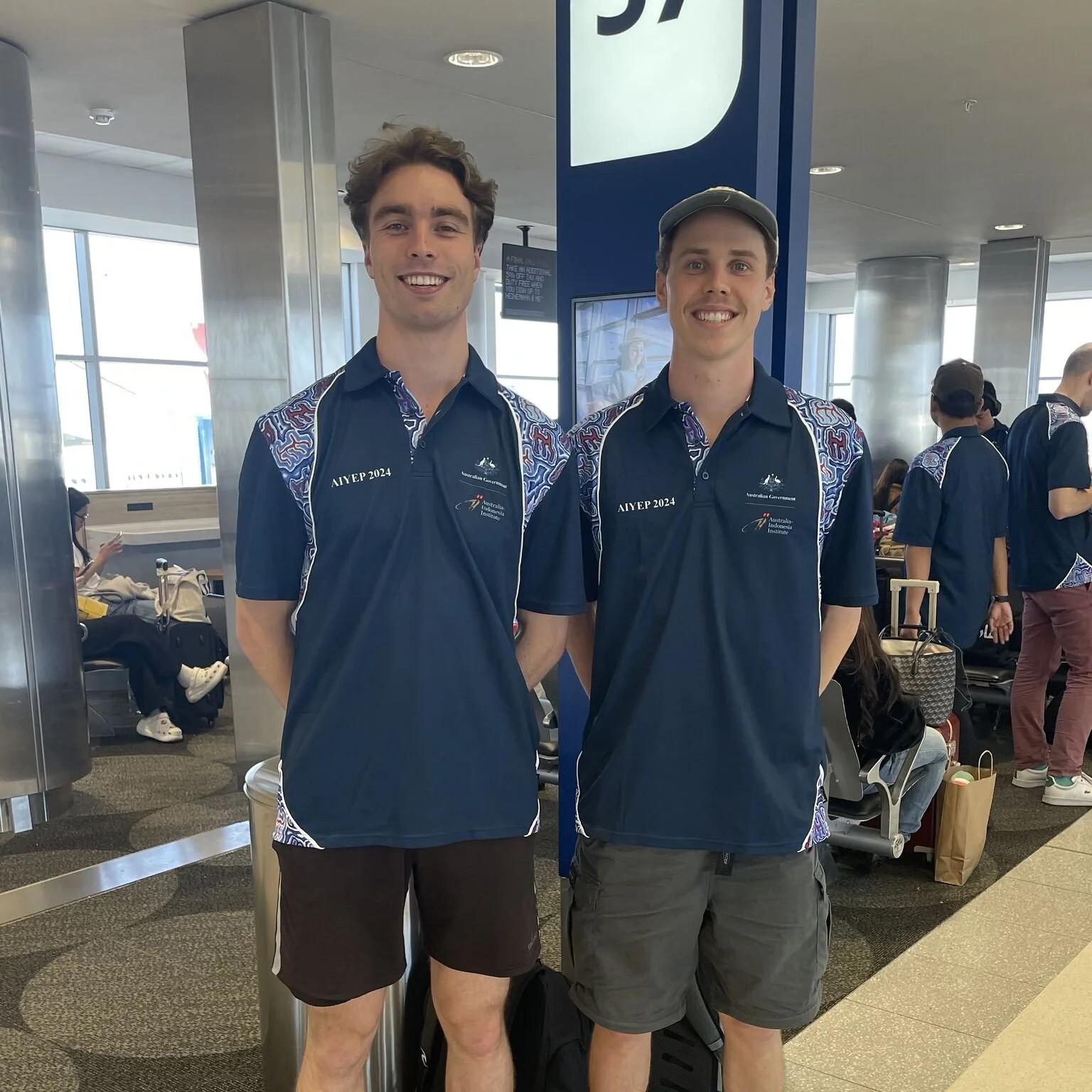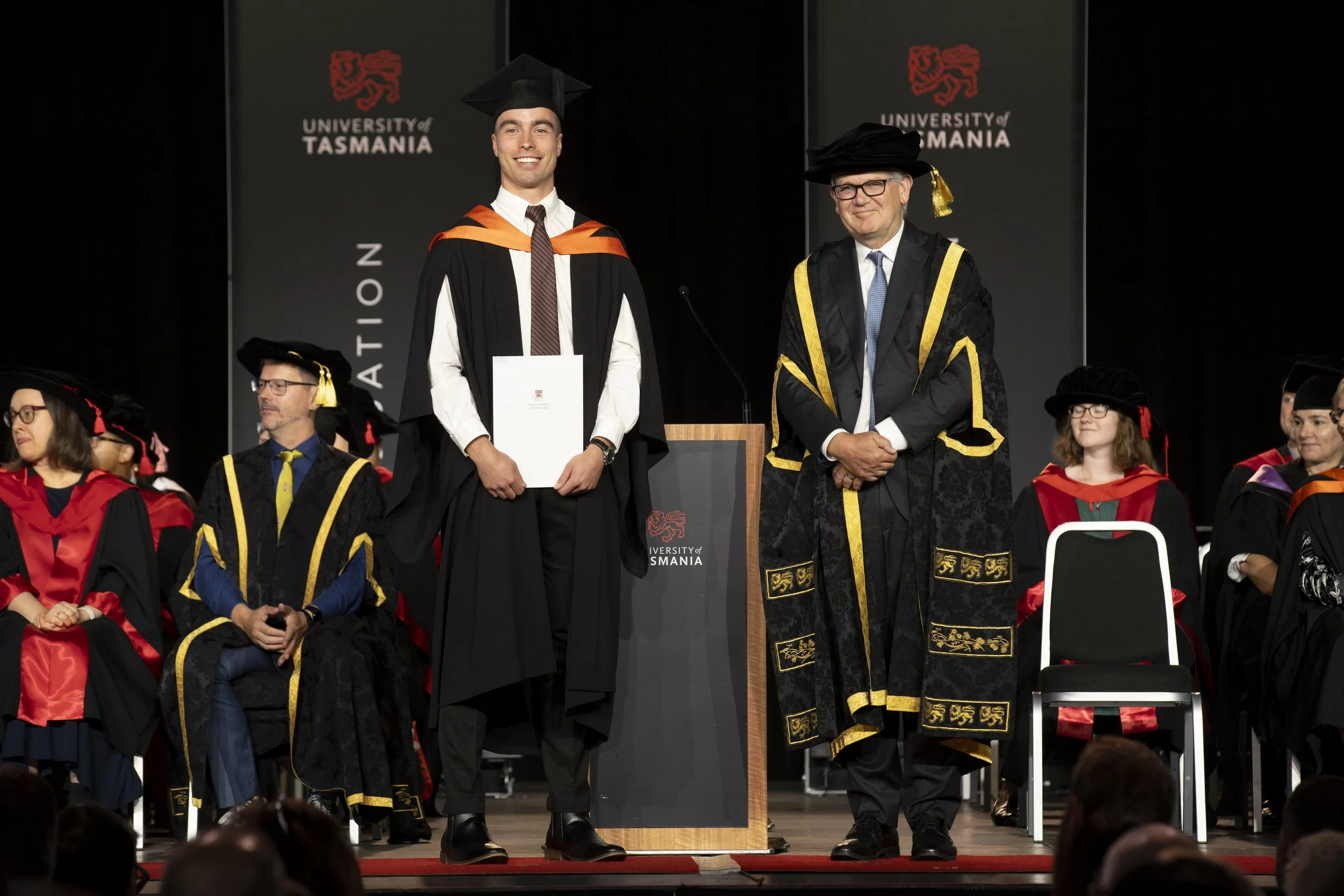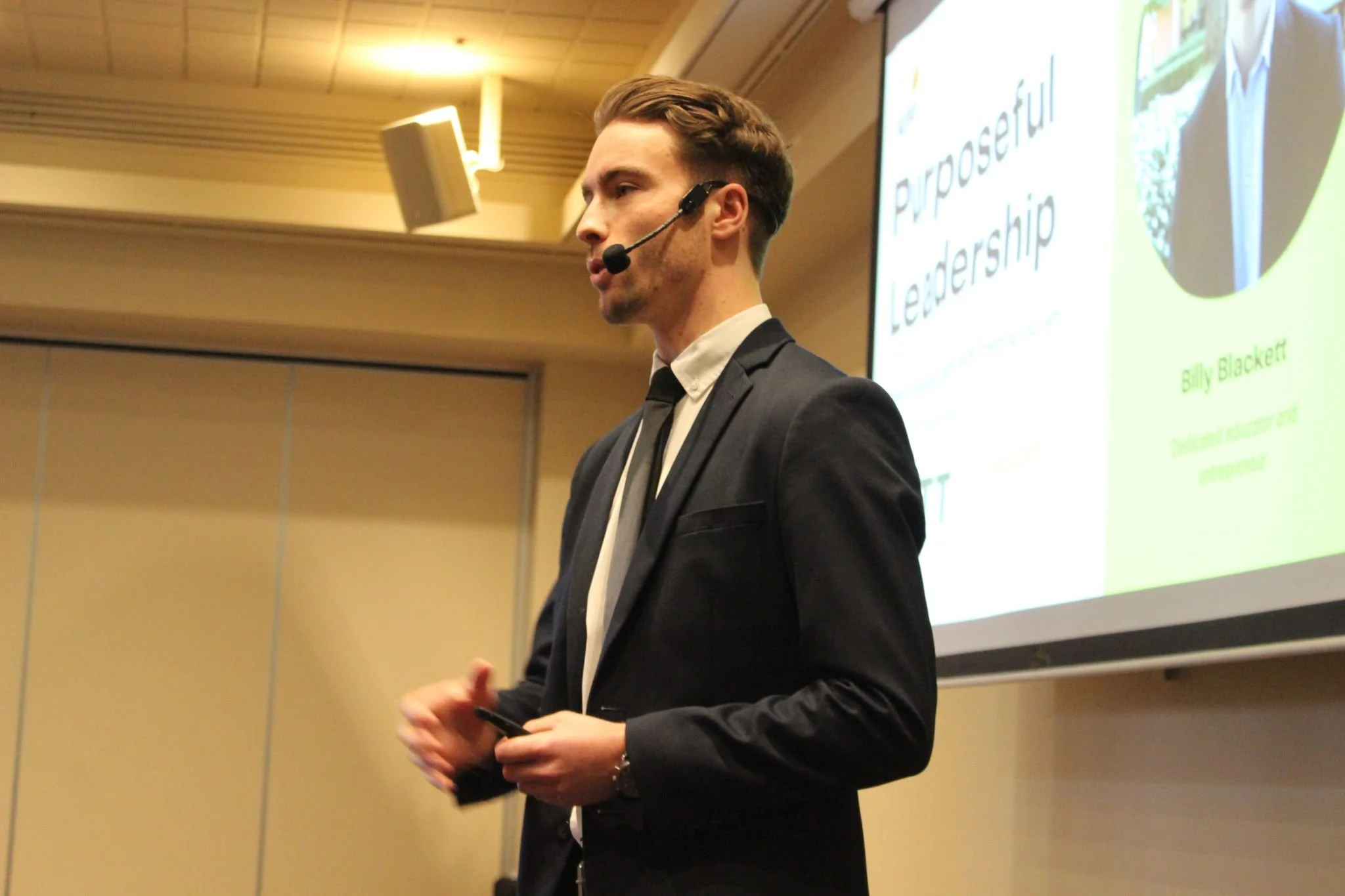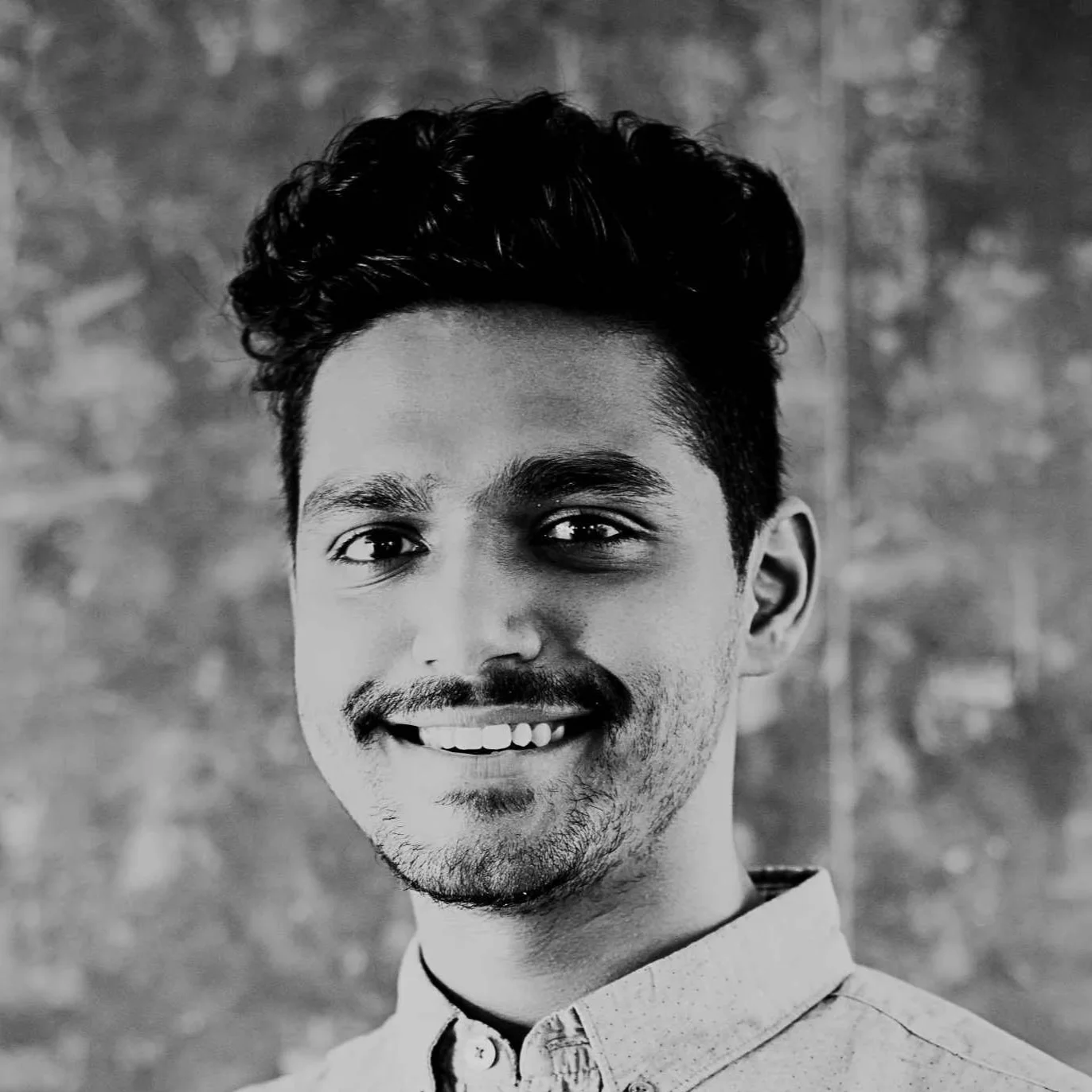Billy Blackett On Levelling The Playing Field With Global Education Access And Student Wellbeing
Raised in regional Tasmania to two parents committed to community service and education, Billy developed an early appreciation for equity, resilience, and the importance of opportunity.
At 18, he channelled these values into social entrepreneurship by founding Affordable Tutoring Tasmania, an award-winning educational startup, and launching Milestone Mentoring, a support program for children on the NDIS.
Billy quickly gained recognition for his innovative thinking and leadership skills, serving on various boards, including international award programs and premier-level sports clubs. He was later invited to serve on the board of his former high school to develop a mentoring program for its members, of which there are over 5,000 worldwide. In 2022, he was further honoured as Young Alumni of the Year and recognised for his business acumen by Awards Australia.
Alongside his professional ventures, Billy pursued a Bachelor of Economics, graduating with the highest grades in his cohort in 2023 and included in the University's Roll of Excellence in 2024.
With a strong interest in education policy and workforce development, Billy is writing a thesis on the role of project-based learning in developing soft skills for the future workforce. As part of his honours course, he interned with one of Australia’s leading public policy think tanks, all while continuing to grow his business into the state’s largest tutoring platform, exceeding over 50 educators at its peak. More recently, Billy served on an advisory panel informing an education program for homeless and disengaged youth in Tasmania.
Billy has taken his expertise and interest for policy change global, participating in a New Colombo Plan-funded exchange to Hanoi, Vietnam, where he explored sustainability policy, and representing the Australian government in the Australia-Indonesia Youth Exchange Program.
As a Rhodes Scholar-elect, Billy will first pursue a Master of Public Policy at the Blavatnik School of Government, University of Oxford.
Billy discusses how equitable access to international study opportunities can build self-efficacy in students, and why prioritising mental health is essential for young entrepreneurs aiming to create lasting social impact.
Highlights from the interview (listen to the podcast for full details)
[Emma Dimech] - To start off, can you please share a bit about your background and what led you to your work supporting students through tutoring and education?
[Billy Blackett] - I was very fortunate to grow up in Tasmania. For those international listeners who may not know, Tasmania is a beautiful island located south of Melbourne, below mainland Australia.
When it comes to education, Tasmania essentially offers three options for students to attend. I was fortunate enough to experience all three throughout my own learning journey.
That journey began in outer regional Tasmania, where I grew up in a small country town and attended the local public school. I then transitioned into Catholic education in the outer suburbs of Hobart, and finally completed my schooling at a private school in central Hobart through a scholarship. This gave me a unique insight into the challenges faced by each system, along with the pros and cons of each. It provided a strong foundation for my work in the education space.
This all came to fruition for me in the wake of COVID-19. I was hearing a lot in the news about how the pandemic was going to affect students, and it occurred to me while drawing on my own experience many young people would have encountered the impacts of COVID-19 in very different ways through their learning.
That realisation led me to found a tutoring business aimed at levelling the playing field, particularly for young people who were especially vulnerable to the effects of the pandemic. That venture snowballed into various opportunities, and I’ve been very lucky to serve on boards and contribute to a number of initiatives addressing the issues caused by COVID-19, as well as broader challenges in education. That pretty much sums up my initial steps into the social entrepreneurship space.
You’ve had such an incredible journey, and it’s impressive how involved you are in various ways, from boards to the programs you've started. It’s really widespread. Recently, you founded a new initiative—the Global Scholars Club. Could you share more about the work you aim to do with that initiative?
After wrapping up several of these initiatives and gearing up for my travels abroad to further my studies in England, I was looking for a new opportunity to apply my skillset, particularly something that could have an international focus. One idea that came to mind during my brainstorming was actually inspired by a situation I encountered a few years ago.
I attended a house party where I spoke with a young person who was studying at university, much like myself. They asked about my work in Tasmania, and when I asked about their studies, they began to list a number of fantastic international opportunities they’d been a part of. I thought to myself, “I didn’t even know these things existed!” So, I decided to reach out to a few peers and ask, “What led you to pursue these international opportunities?”
The common thread I found was that young people had access to a network or the knowledge that these opportunities were available. It made me realise after listening to the experiences of many students, some young people have access to more opportunities than others. I thought a proactive way to get involved would be to research the various opportunities available, then create a robust database that anyone could access. That’s how the Global Scholars Club was born.
Our first initiative is incredibly exciting, yet simple. It’s called "I Asked 100 Global Scholars," and it’s exactly what it sounds like. We’re gathering valuable qualitative data on how young people access these opportunities, the benefits they gain from them, and the challenges they face. This information will then be shared with young people who may not otherwise have the chance to experience these opportunities.
With breaking down those barriers and exploring these incredible opportunities, why do you believe it’s so important to give students access to them?
It's a very good question, and from my perspective, I see three core domains that are essential to helping young people overcome educational barriers.
The first domain is foundational. There’s a lot of media attention and focus on literacy, numeracy, behaviour, and general engagement in education. These areas form the basis of why we go to school and the skills we acquire there. Even elements like social skills fall under this domain. Before anything else, it’s crucial to get young people engaged in these foundational skills.
The second domain is life skills. There’s growing recognition of how foundational skills significantly impact a person’s daily life. Take literacy, for example—when you visit a GP, you may need to fill out a form, book online, or navigate a process, all of which require a certain level of literacy. Similarly, numeracy is vital for managing personal finances effectively and living a fulfilling life in that area.
The third domain (the one I’m perhaps most passionate about at the moment) is the idea that education builds self-efficacy. Education is a powerful tool for helping young people develop the belief that their decisions and actions can shape their own lives. It gives them the agency to make an impact in the spaces around them.
I see global opportunities as a strong means of developing that third domain. Of course, all three are deeply interrelated.
As a young entrepreneur still fairly early on in their impact journey, what have been some of the biggest challenges you've faced so far?
It's interesting because I went back and listened to a few episodes of Impact Boom, and it was great to search the word “wellbeing” and see a catalogue of young entrepreneurs, middle-aged entrepreneurs and older entrepreneurs all talking about how important it is. My story is certainly no exception.
I first discovered the importance of wellbeing halfway through what has been a short and sharp entrepreneurship journey so far. It occurred to me at a social event where I was catching up with a friend. He asked me, as people do, “How are things? How are you going?” We hadn’t seen each other for a while.
I responded, “Look, to be honest mate, I’m not actually doing that well.” He looked at me quite puzzled. Of course, as young men talking about mental health, the conversation became a bit awkward.
One thing however stood out from his response. He said something along the lines of, “But it looks like everything you’re doing is going quite well.”
I reflected on that and tried to objectively assess what was happening in my life. At the time, I was pursuing a high GPA at university and fortunately, my studies were going well.
I had two business ventures, was serving on boards, and had internships. I also lived in a share house with six friends, which made life busy socially too. On the surface, everything looked positive and successful.
Yet, as you might guess, I was actually feeling deeply distressed. I would often wake up with a lot of anxiety, and generally, my wellbeing was suffering. It was something I hadn’t heard much about before. The reality is that, as an entrepreneur, you carry a lot of responsibility and pressure to achieve, deliver outcomes, and support others. It’s incredibly easy to neglect your own wellbeing.
The biggest challenge I’ve faced, especially since that moment, has been finding balance and understanding that investing in my mental health was not just essential, but would pay dividends in my work and life overall.
What advice would you give to aspiring changemakers looking to start their own initiatives?
When it comes to advice, I like to be very practical. It’s a bit of a shift from what we’ve been talking about so far. The key themes I try to focus on when giving advice to young people are related to wellbeing.
The first piece of advice I always give is to find yourself a mentor. This can be daunting, and many people don’t know what they’re looking for. I was in that boat myself.
It can be a process, but finding someone who’s been on the journey you’re about to go on, perhaps someone only a few years ahead of you, and also someone who is much further along and has a wealth of life experience, can be invaluable.
Having people you can lean into, talk to, share the burden with, and receive advice from is so helpful, particularly from the start. If I could go back and begin my entrepreneurship journey again, I would absolutely look for a mentor straight away.
Another really practical tip I often hear on podcasts (one I wish I had heard earlier) is to build your project, whether it’s a not-for-profit, business, initiative, or program, with the end in mind. Often, we start these things thinking, “this is going to be something I do for the rest of my life,” but the reality is that opportunities come up. There’s usually a point where you’ll hand the project over to someone else.
In my case, an opportunity came up to study in England, which meant I had to hand over a number of my initiatives to capable hands. Building something from the outset with this in mind can really help. The third piece of advice (and this one’s a bit stereotypical) is to just start. Give something a go.
Entrepreneurs often have perfectionist tendencies. We want a polished product, we try to anticipate all the things that might go wrong, and we overthink how to solve them. But really, the learning happens when you dive in. For me, that looked like starting a tutoring business using nothing more than a paperback calendar, before quickly realising we’re in the 21st century and there are probably better tools out there!
If you’ve got a mentor in place and a clear end in mind, you’ve already got a solid foundation. Then, it’s just about diving in and giving it a go.
Have you seen any inspiring projects or initiatives lately that are creating social change?
There’s plenty to choose from, but one initiative I really relate to is The Resilience Project by Hugh van Cuylenburg. I first came across Hugh’s work in quite a funny way. I was heading off on a holiday and catching a plane when someone handed me his book at the last minute. I’d heard great things and was looking forward to reading it.
It was a flight to Darwin, a few hours long, and as I walked down the aisle, I found my row. On either end of the three seats were two big guys, who I later found out were miners. I squeezed into the middle seat, scrunched my shoulders tightly, and started reading.
Unfortunately for me, The Resilience Project is a real tear-jerker. I found myself quite literally sobbing on the plane to the point where one of the miners turned to me and asked, somewhat awkwardly, “Is everything alright, mate?” Staying true to the vulnerability the book champions, I of course said, “All good mate, I’ve just got something in my eye!”
In all seriousness, The Resilience Project focuses on gratitude, empathy, and mindfulness. It truly shifted my perspective on wellbeing and highlighted how much of a priority it should be in life. The work Hugh van Cuylenburg and his team are doing in this space is incredible—particularly for young people—and I’m very grateful to have come across it. It was a real turning point in my journey.
To finish off, are there any books or resources you would recommend for our audience?
There are two that come to mind, and they’re a bit left field, but I believe entrepreneurship comes in all different shapes and sizes. For me, the book that really grounded my worldview is Sapiens by Yuval Noah Harari. For those who aren’t familiar, Sapiens explores the history of humankind. It presents its own perspective which may not align with every worldview, but it offers valuable insight into how the modern world came to be.
One of the big takeaways for me was about institutions, things like universities, schools, governments, and banks. The book helped me understand that many of these institutions were formed under specific historical circumstances. Those circumstances weren’t necessarily perfect or optimal, but they were the best available at the time. That message stuck with me. It reminded me that we have a role to play in continually scrutinising and improving the systems and institutions we inherit. That idea has certainly informed my journey as a social entrepreneur.
The second book I’d like to mention is Women, Men and the Whole Damn Thing by David Leser. It’s a confronting exploration of the treatment of women over centuries. What stood out to me most was how clearly it explained the role of privilege in our world. It’s something I’m still learning about, but the book really opened my eyes to how privilege shapes society and impacts people from different backgrounds.
When I relate this to my work in social entrepreneurship, I try to stay aware of where I’ve come from, how lucky and fortunate I’ve been in my upbringing. It’s given me a new lens through which to view many of the social issues we face, and I hope to continue learning with curiosity and openness.
Those are two unexpected book recommendations I think are incredibly valuable for any young person looking to get involved in this space.
Initiatives, Resources and people mentioned on the podcast
Recommended books
The Resilience Project: Finding Happiness through Gratitude, Empathy and Mindfulness by Hugh van Cuylenburg
Sapiens: A Brief History of Humankind by Yuval Noah Harari
Women, Men and the Whole Damn Thing by David Leser

